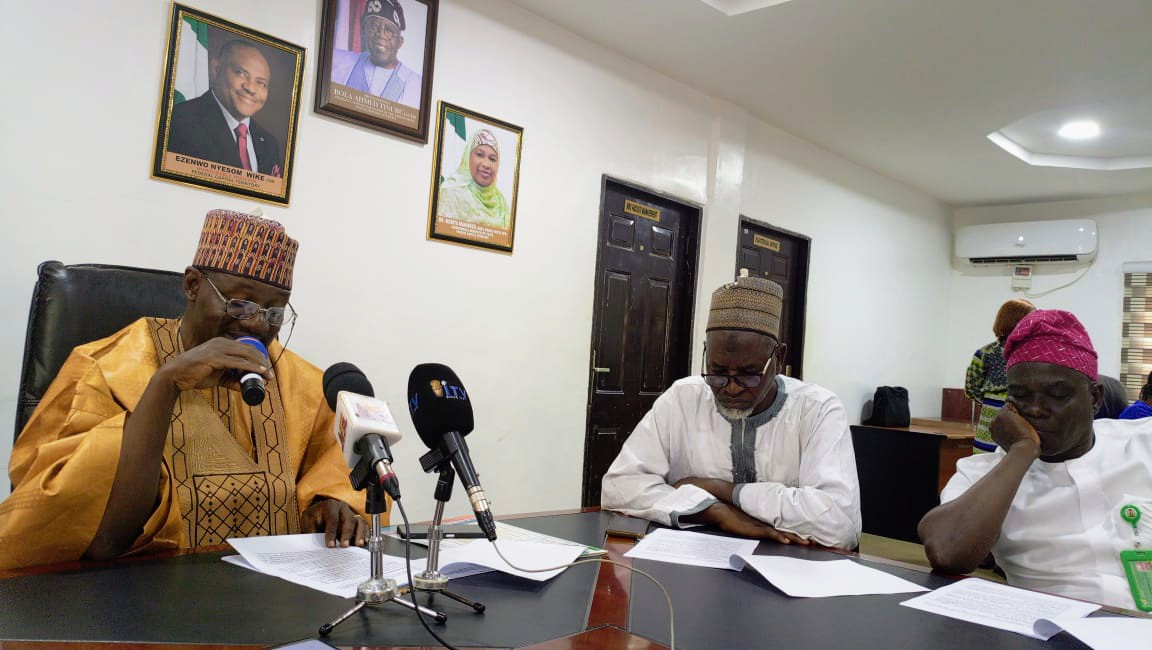By Philip Yatai
The Federal Capital Territory Water Board, says it generated revenue totalling N3.1 billion from January to November, 2023.
The acting Managing Director (MD) of the Board, Mr Daniel Salka, disclosed this during the Board’s end-of-the-year media briefing in Abuja on Thursday.
Salka explained that the amount was higher than the N2.5 billion generated in 2022.
He added that currently, the Board’s monthly Internally Generated Revenue (IGR) has increased from about N200 million to over N300 million.
He described the FCT Water Board as one of the “key” revenue generating agencies of the FCT Administration.
He explained that the main source of the revenue was from the sale of water which constitutes about 95 per cent.
The acting MD added that other revenues were generated from lifting points, water connections, water analysis, tender fee on procurement matters and prepaid metres.
He also said that the Board had been able to reduce non-revenue water.
He described non-revenue water as water lost to either leakages on the pipes, illegal connections, or faulty metres among others, which do not bring revenue to the Board.
He said the feat was made possible by the Task Force team on Revenue Drive and Illegal Connections.
He explained that the team discovered several illegal connections and disconnected or formalised them, while those that were not paying water bills were made to pay their bills to avoid being disconnected.
On the supply of water to residents of the city, the acting MD said that the Board was able to sustain improved water supply, despite the exponential increase in FCT population.
“Currently, we supply 13,00O cubic metres of water per hour, amounting to 312,000 cubic metres per day. This is, however, not enough due to the inability of the facilities to convey more.
“Our Water Treatment Plants 1 and 2 have the capacity to produce 5,000 cubic metres of water per hour, while plants 3 and 4 produce 10,000 cubic metres each per hour.
“In the whole, the four plants have the capacity of producing 30,000 cubic metres per hour for distribution to customers across the areas covered by the water distribution lines in Phases I, II and III.
“However, Phases III and IV of the Plants are mainly meant to service reservoir Tanks 1 and 6 but have been under reconstruction for a while now.
“Similarly, it is important to mention that Plant 2 is also undergoing renovation and therefore, not functioning now,” he said.
He identified some of the challenges affecting the performance of the Board to include inadequate infrastructure, population growth and lack of functional metering system.
He, nonetheless, expressed optimism for improved service in 2024.
He said that part of activities earmarked for 2024 to improve service delivery include improved community engagements and sensitization of the public to pay for water and protect water infrastructure.
“We will further reduce non-revenue water and enhance stakeholders’ collaboration with government agencies, non-governmental organisations, and international organisations.
“This will enable us to leverage expertise, resources, and support water management initiatives.
“Also, the Greater Abuja Water Works, if completed, will bring succour to FCT residents as access to water will be increased,” he said. (NAN)
Edited by Vincent Obi












Not when Karu and Nyanya residents have not gotten water since September 2023.ALMOST 5 months since we last got water from ‘FCT Water Board”